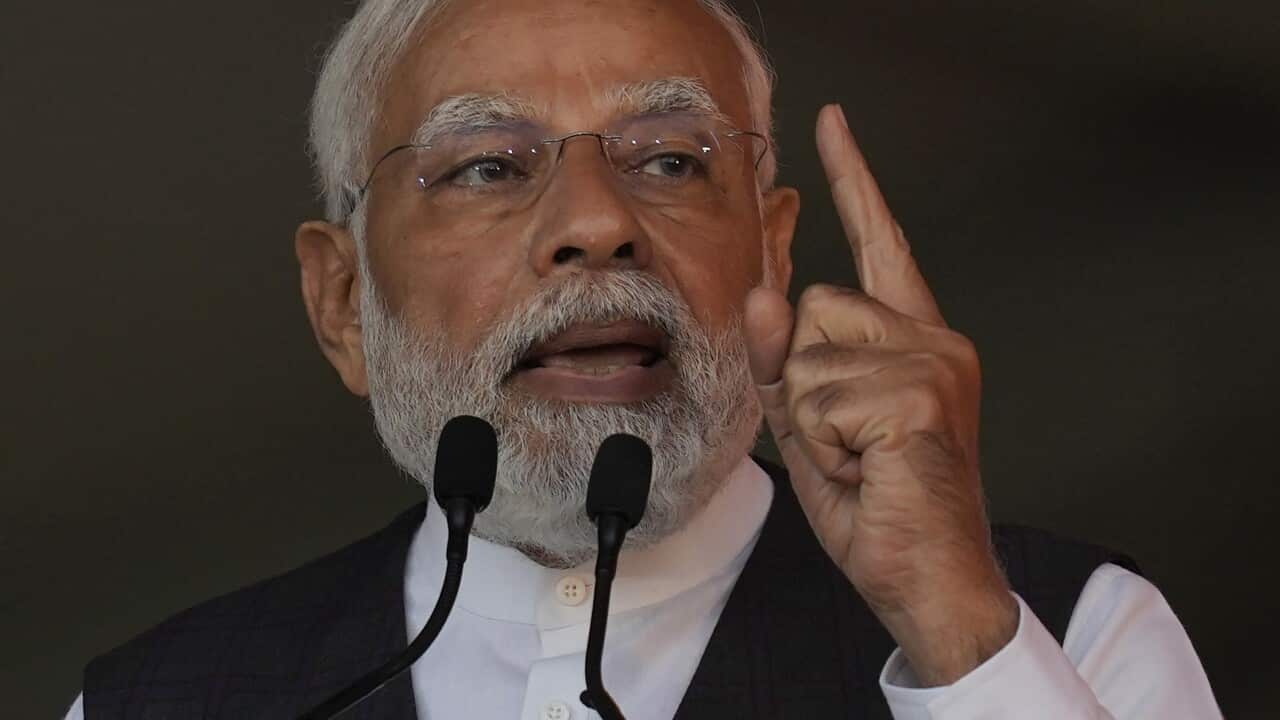KEY POINTS:
- The Indian government has banned BBC documentary "India: The Modi Question"
- It has also used emergency powers to force Twitter and YouTube to remove footage from their sites
- University students attempting to screen the film have been detained and attacked
Electricity was allegedly cut to universities and Twitter links censored as part of a ban on a BBC documentary about Indian Prime Minister Narendra Modi.
India's government used its emergency powers on Saturday under the country's controversial information technology laws to block footage of the two-part documentary "India: The Modi Question" from being shared on social media.
Links to the documentary on around 50 Twitter accounts were removed, as well as on an unspecified number of YouTube channels, the Guardian reported.
The compliance of the social media giants has been criticised by activists, particularly as Twitter chief executive officer Elon Musk has described himself as a free speech "absolutist" and accused the platform's previous ownership of bending to US government demands on content matters.

Police detain an activist outside the Jamia Millia Islamia university in New Delhi, India, Wednesday, January 25, 2023. Source: AP / Manish Swarup
Students at another New Delhi campus - Jawaharlal Nehru University - on Tuesday night to stop the film from being shown, and said some students say they were also pelted with rocks.
What is the documentary about?
The BBC documentary delves into Narendra Modi's time as premier of Gujarat state, and his actions during deadly 2002 riots, which left at least 1,000 people dead, most of them minority Muslims.
The riots began after 59 Hindu pilgrims were killed in a fire on a train. It was initially alleged that Muslim vendors burned the train but the .
In the aftermath of the tragedy right-wing Hindu mobs targeted Muslim homes and businesses, with at least 1,000 people killed. This included 11 men , Bilkis Bano, and the murder of 14 members of her family including her three-year-old daughter.

Men pelting stones during the Gujarat riots in 2022. Source: Getty / Dipam Bhachech
The BBC cited a previously classified British foreign ministry report quoting unnamed sources saying Modi met senior police officers and "ordered them not to intervene" in the anti-Muslim violence.
The violence was "politically motivated" and the aim "was to purge Muslims from Hindu areas", the foreign ministry report said.
The "systematic campaign of violence has all the hallmarks of ethnic cleansing" and was impossible "without the climate of impunity created by the state Government... Narendra Modi is directly responsible," it concluded.
Mr Modi, who ran Gujarat from 2001 until his election as prime minister in 2014, was briefly subject to a travel ban by the United States over the violence.

Narendra Modi (then Chief Minister of Gujarat) heading to riot affected areas in Ahmedabad Gujarat India on 28 February 2002. Source: Getty / Dipam Bhachech
A special investigative team appointed by the Indian Supreme Court to probe the role of Mr Modi and others in the violence said in 2012 it did not find any evidence to prosecute the then chief minister.
Why has India banned the documentary?
India's government said it had blocked videos and tweets sharing links to the BBC documentary, calling it "hostile propaganda and anti-India garbage".
Kanchan Gupta, an adviser to the government, tweeted on Saturday that the Indian government used emergency powers under IT rules to block the documentary and its clips from being shared on social media.
"Videos sharing @BBCWorld hostile propaganda and anti-India garbage, disguised as 'documentary', on @YouTube and tweets sharing links to the BBC documentary have been blocked under India's sovereign laws and rules," he said.
Mr Gupta said multiple ministries had examined the documentary and "found it casting aspersions on the authority and credibility of Supreme Court of India, sowing divisions among various Indian communities, and making unsubstantiated allegations".

Indian Prime Minister Narendra Modi. Source: AAP
The BBC said the documentary was “rigorously researched” and featured various opinions and experts.
“We offered the Indian government a right to reply to the matters raised in the series - it declined to respond,” the statement said.
said the blocking of the documentary was "just the latest attempt to prevent criticism of the government of Prime Minister Narendra Modi".
"The Modi government has adopted discriminatory laws and policies against Muslims and attempted to curb independent institutions. It has frequently used draconian laws to jail critics," it said.
With additional reporting by AFP.









